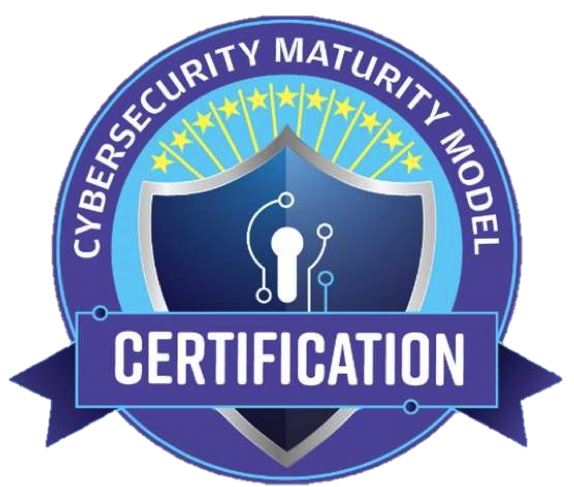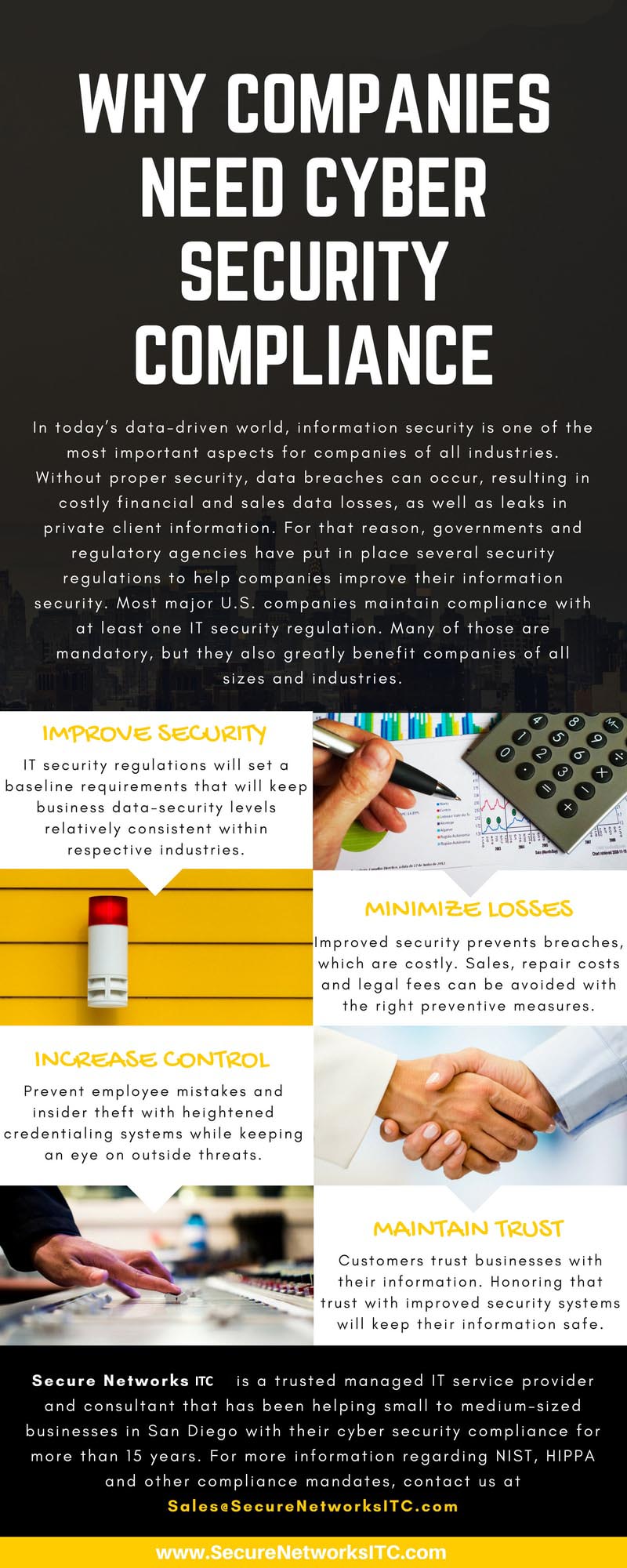Guiding Your Company to NIST and HIPAA Security Compliance
In case you've heard about NIST or HIPAA you're probably either an IT guy or you are an organization that should be compliant. In case you haven't heard about these government and healthcare requirements, it would be wise to spare a moment and get yourself familiar with it as there is a good chance you'll find that you'll need to reconsider your approach to cyber security.
Curious to see how your organization measures up? Contact us and we'll get you on the road to NIST!


What we'll do:
- Get to know your business processes and requirements to understand which NIST publication is suitable for your business
- Run the initial assessment to determine the current compliance level
- Present an assessment report with a clear security plan
- Present the roadmap for achieving compliance, priorities and milestones
- Completely take care of the process of improving your cyber security infrastructure
The very first thing you'll need to know is that compliance is not the ultimate goal. It represents a minimum, the beginning step and, like in the case of HIPAA, it only protects the organizations from the regulators. This is the part where your organization would need help from a trusted managed IT service provider such as Secure Networks ITC. We would help your organization elevate its standards and maintain effective practices and in a safe cyber environment.
The National Institute of Standards and Technology (NIST) provides computer security guidance on how US companies and organizations that directly or indirectly provide services or products to the federal government can assess the potential risks they are facing and improve their prevention, protection and response to cyber-attacks. Technically, NIST is not a requirement, so an organization cannot really be "compliant". It can however, follow the guidelines as it challenges it to evaluate its approach to the critical areas, select implementation controls according to the available budget and risk appetite, and provides guidance on how to monitor and re-evaluate the landscape. In other words, it helps you to make sure your infrastructure is secure. It is important to keep in mind that complying with NIST doesn't provide you with the complete assurance that your data will be secure. Rather, it will help you identify the most sensitive areas and to prioritize your protection. This approach was developed for use by organizations of all sizes – from the smallest to enterprises and largest organizations. This means that you don't need to be a large government organization to follow the path to NIST compliance. After all, it just a clearly outlined bare minimum of what you as a business need to do in order to stay safe against cyber-attacks that are on the rise by each day. Secure Networks ITC will help you understand what NIST is and why it is in the best interest of your business to follow the guidelines. We'll provide assessment, consulting and implementation of services to meet NIST requirements.
What is NIST?
The National Institute of Standards and Technology (NIST) provides computer security guidance on how US companies and organizations that directly or indirectly provide services or products to the federal government can assess the potential risks they are facing and improve their prevention, protection and response to cyber-attacks. Technically, NIST is not a requirement, so an organization cannot really be "compliant". It can however, follow the guidelines as it challenges it to evaluate its approach to the critical areas, select implementation controls according to the available budget and risk appetite, and provides guidance on how to monitor and re-evaluate the landscape. In other words, it helps you to make sure your infrastructure is secure. It is important to keep in mind that complying with NIST doesn't provide you with the complete assurance that your data will be secure. Rather, it will help you identify the most sensitive areas and to prioritize your protection. This approach was developed for use by organizations of all sizes – from the smallest to enterprises and largest organizations. This means that you don't need to be a large government organization to follow the path to NIST compliance. After all, it just a clearly outlined bare minimum of what you as a business need to do in order to stay safe against cyber-attacks that are on the rise by each day. Secure Networks ITC will help you understand what NIST is and why it is in the best interest of your business to follow the guidelines. We'll provide assessment, consulting and implementation of services to meet NIST requirements.
NIST lays foundational protocol for companies to follow when achieving compliance with other regulations such as the HIPAA.
HIPAA Compliance
The Health Insurance Portability and Accountability Act or HIPPA for short sets standards for protecting sensitive patient data. In case you are a company that deals with protected health information, you are obligated to make sure your company implements and follows all physical, network and process security measures. This includes those who provide treatment, payment and operations in healthcare, those who have access to patient information and provide support in treatment, payment or operations, and subcontractors. IT service providers are considered "business associates" to health care clients, which requires them to comply with portions of HIPPA as well. HIPPA Privacy Rule deals with personal and medical information of any individual and accessing, saving and sharing of such information. HIPAA Security Rule defines national security standards more specifically with a goal to protect data that was created, received, maintained or transferred electronically (ePHI or electronic protected health information). This would be the most relevant section of HIPAA for IT service providers. HIPPA regulations are very much like NIST, but unlike NIST, the violation of HIPAA compliance rules results in penalties, so it is crucial for your company to follow all the regulations and fulfill all requirements. And just like NIST, HIPAA affects organizations of all sizes, and smaller companies are usually the ones that struggle the most when it comes to grappling with the rules. They need the expertise of an IT service provider to keep their business and patients safe and to keep them compliant. Most small businesses don't have the resources to take care of the compliant cyber security, so although it might not seem that way at first, for your small or medium-sized business managed IT service provider is a necessity.
What we'll do:
- Provide assessment of your current level of compliance and consulting
- Create a compliant data protection strategy
- Set up HIPAA compliant email, like office 365
- Help your servers become HIPAA compliant
- Ensure that the workforce is compliant with the guidelines
Secure Networks ITC will take care of the entire process of becoming HIPPA compliant. The focus would be creating a strategy for meeting broad requirements for protecting ePHI stated in the Security Rule. The goals would be to ensure the confidentiality and availability of ePHI, protect it from threats and hazards, unauthorized use and disclosure.

CMMC Compliance
Cybersecurity is pivotal for organizations that work with the Department of Defense or DoD since they’ll soon be obligated to comply with the new Cybersecurity Maturity Model Certification (CMMC). The ultimate goal of the CMMC is to certify that defense contractors have in place the controls required to protect sensitive information. Sooner or later, all DoD contractors will be required to have a certification from independent P3AOs (Third-Party Assessment Organizations) and assessors, who will assess which of the five certification levels the contractors meet satisfy. Small to mid-sized government contractors often find themselves in a difficult position, with large competitors with vast resources on one side and strict regulations on the other side. To comply with the new CMMC, they must have the controls required to protect sensitive information against current and future cyber threats. A partnership with a managed IT service provider is necessary for small to mid-sized government contractors to accomplish and maintain CMMC certification without stretching themselves too much and, thereby, losing focus on their core business.
Secure Networks ITC works side-by-side with you to make sure you are fully prepared for the CMMC audit. Via a structured outline and report, you will have a clear picture of gaps and practices to amend your cybersecurity plans to meet certification requirements. And our relationship won’t stop there! We take it a step further with the capacity to become your long-term partner by leaving the cybersecurity responsibility to us for years to come as your trusted information security specialists.










